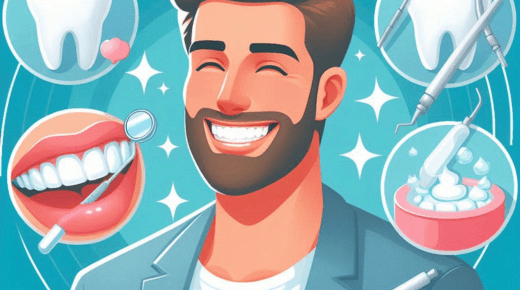Teeth whitening procedures often help people achieve a brilliant, confident smile. Maintaining oral health and cosmetic appeal depends on knowing how often to whiten teeth, regardless of your choice—professional or over-the-counter. Let’s explore professional advice for teeth whitening in Pacific Beach and useful pointers to guide you toward the ideal whitening plan for your smile.
What is Teeth Whitening?
It’s important to know what teeth whitening does before we explore frequency. A number of things can cause teeth stains, including:
Diet: Notable offenders are coffee, tea, red wine, and dark-colored fruit.
Tobacco: Tobacco stains can seriously dull teeth.
Medications: A few drugs might darken teeth.
Age: Our teeth naturally start getting somewhat yellow as we age.
Products for teeth whitening break down stains on the surface of the teeth, rendering them whiter. However, whitening does not alter the inherent color of your teeth.
Kinds of Whitening:
- Professional Whitening: Usually done by a dentist, this entails faster, more obvious effects by using higher concentrations of whitening agents.
- Over-the-counter (OTC) Products: You can use whitening toothpaste, strips, and trays with reduced concentrations of whitening chemicals at home.
Whitening agents: Most whitening products dissolve stains on the enamel using carbamide peroxide or hydrogen peroxide.
Results Density: Individual habits, oral care practices, and the kind of whitening procedure applied affect the lifetime of whitening effects.
When should you whiten your teeth?
You decide when to whiten your teeth.
If you maintain a decent diet, avoid staining foods or beverages, and take great care of your oral health, you might never need to have your teeth professionally whitened.
When you are ready, professional teeth whitening is a choice for you, whether you are dissatisfied with the shade of your teeth or not.
Should you need professional, in-chair whitening, your dentist will counsel you on the required pre- or post-operative procedures.
If you use at-home whitening solutions, it’s best to whiten your teeth at the end of the day as you get ready for bed. This is because you won’t eat or drink, and your last daily brush will leave your teeth clean. This also provides the compounds with ideal conditions for effectiveness throughout your sleep.
How Often is Too Often?
The quick response is: it depends. A number of elements affect the frequency of your tooth whitening:
Professional in-office whitening usually results in a longer lifespan than at-home kits.
Some people experience sensitivity following tooth whitening.
You may need more frequent whitening if you often eat foods and drinks that cause stains.
Good oral hygiene might help to preserve whitening effects.
Overall Rules To Follow:
Most cosmetic dentists advise professional whitening once or twice a year.
Although one can use these more regularly, one must follow the package directions. One can develop sensitivity via overuse.
Should you show notable sensitivity, cut back on whitening frequency or think about using a desensitizing toothpaste.
Advice for preserving a brilliant smile
Though whitening can assist, there are additional ways to keep your teeth looking their best:
- Frequent dental visits: Frequent cleanings and tests can help eliminate surface stains and identify oral health problems.
- Good teeth cleaning: Brush twice a day, floss often, and use mouthwash to stop stains and plaque formation.
- Restrain Stain-Causing Agents: Cut back on red wine, coffee, tea, and smoking.
- Invest in a straw: Using a straw helps you to reduce contact with your teeth when consuming dark-colored drinks.
Conclusion
Maintaining a brilliant smile combines regular dental work with sporadic whitening treatments. Achieving a better smile and safeguarding your tooth enamel must be balanced in importance. Following the rules and seeing your cosmetic dentist will help you to have a lovely and healthy smile.

